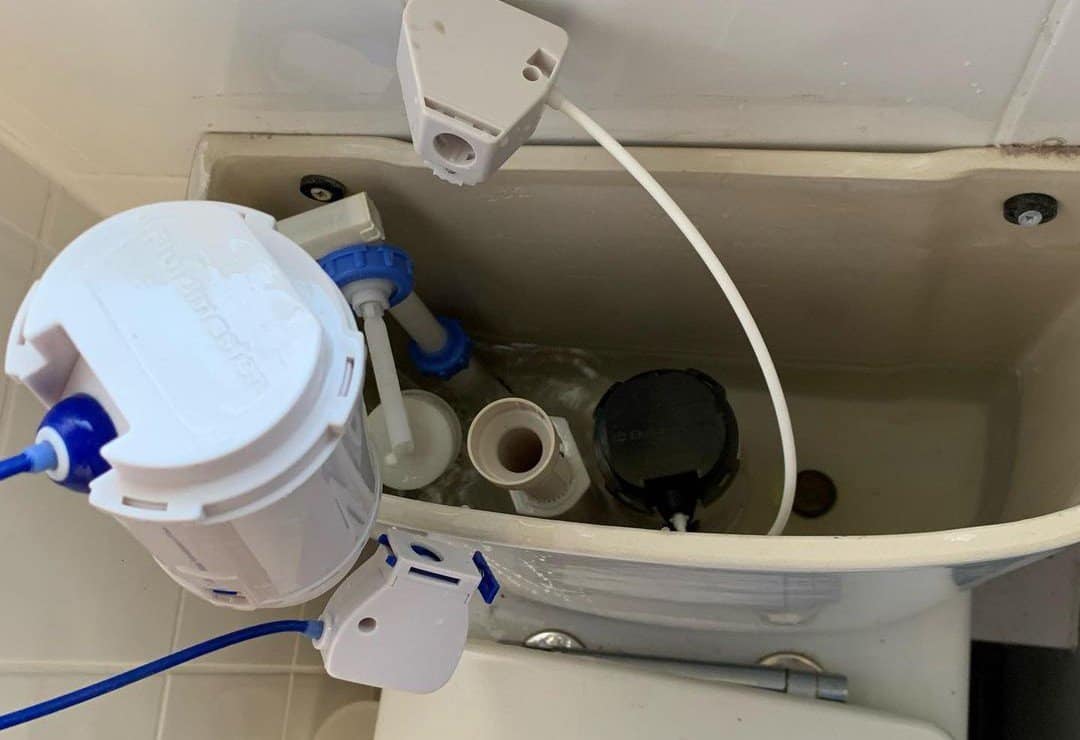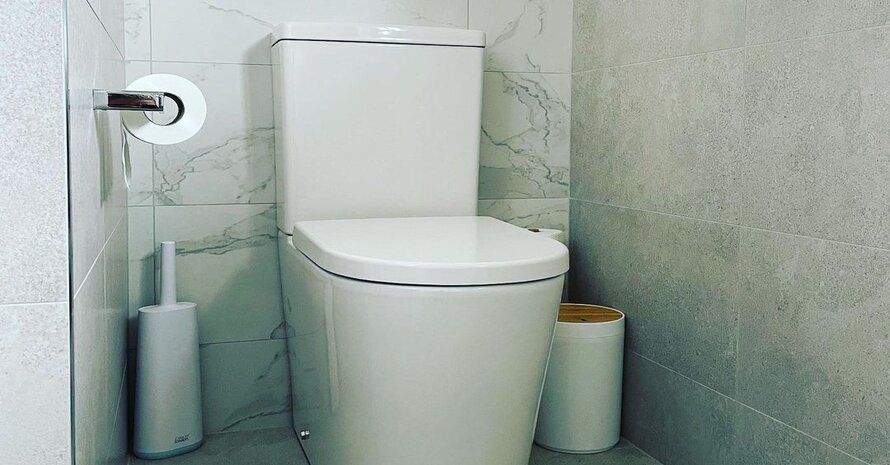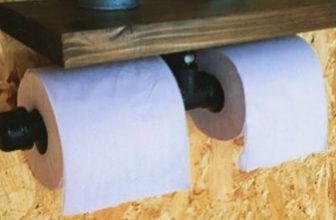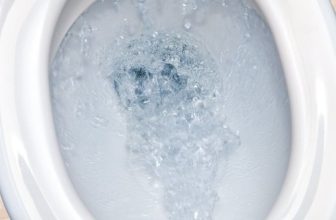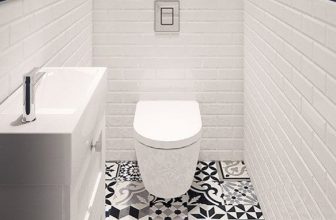Hear the toilet making noise when not in use? It is a sign of malfunction, and in this article, we will talk about the most common faults and components that cause them. Beyond the connection to water supply and sanitation, there is a no less important item, the toilet tank. Let’s consider its construction first:
- a rubber flapper covers the hole at the bottom of the tank;
- a toilet fill valve refills the tank after every flush;
- a fill float follows the level of water;
- an overflow tube directs the water of the tank to the bowl if its level gets too high.
Extra Short Guide on Diagnosing a “Singing” Toilet
- A hissing sound is usually caused by leaks in the toilet tank, in particular in the flapper and a refill valve.
- Gurgling comes from the bowl, which means either the trap or the pipes are clogged.
- Vibrations come both from the toilet tank and from the pipes when the pressure is too high.
Hissing Sound
Toilet running sound most likely means a toilet tank can’t hold the water inside properly; there are a few possible joints where you can find a leak. Take the lid off and look inside, what do you see?
- A flapper lets the water through. You hear noises because the toilet tank is never full and the water continues to go through the fill valve. Flappers last for about five years, so if your flapper is old enough, you may change it with a clear conscience. In another case, check the surface for any mud and wash it. You can also try to carefully cut the chain.
- The refill valve hasn’t shut off properly. When it leaks, extra water flows to the overflow tube and then gets to the toilet bowl instead of pouring over the tank. The first thing to do is to check the lock nut, and if it is loose, shut off the water supply and tighten or replace the nut. The other reason may be mineral deposits on the valve that prevent it from shutting. In this case, you should clean it with vinegar and baking soda or replace it with a new one.
Gurgling Noise
Do you hear a gurgling noise after flushing? It looks like the toilet is clogged. Such sound means that water can’t move freely to the sewage: something stuck in the trap, pipes, or municipal sewer. The trap is clogged because there is usually too much toilet paper or hard foreign items inside, and here are a few ways to fix it.
- Use plunger. Fully cover the trap hole with the plunger and make sure it doesn’t let air inside when you start to move it; pour some water above if you need to. Start pumping and continue until the water starts to drain: if there are no hard items, it takes about 20 cycles. When you see the result, flush. It takes no more than 5 times to flush to see if the trap works as it is supposed or not.
- Homemade drain cleaner. Add one cup of baking soda and two cups of vinegar to half a gallon of hot (but not boiling) water. Pour the mixture into the toilet and let it stand for at least eight hours. Such ingredients help to dilute clogs, so if you see no result after the second flushing, you might have something hard inside and need a plumber’s help.
Vibrating Sound
If you hear a vibration after flushing, try to detect where the sound comes from, is it the toilet or is it the walls? Depending on the answer, here are a few suggestions, of what could go wrong and what you should do.
- Take a look inside a toilet tank. The fill valve has a diaphragm gasket which becomes less flexible over time. Due to wear, it may not sit as it is supposed to: running water flip it, so you hear the noise. In this case, simply change the gasket.
- If the toilet keeps making noise, check the pipes. When you make sure that everything is fine in the tank, pay attention to the pipes. They should be tightly fixed, and if not, all you should do is immobilize them.
- Measure the pressure. Water pressure gauges should show no more than 60psi, which is a maximum, that doesn’t harm plumbing joints. Vibrating sounds may be a sign of too high pressure, you might need to consider installing a water pressure regulator.
- High pressure can also cause a phenomenon called water hammer. What happens? When the valve closes and water continues to flow, it hits the valve and stops suddenly or changes its direction. In this case, you can install slow-shutting fill valves.
Other Causes of Toilet Noises
The list above is far from full. The toilet is a part of a big and complex plumbing system. Malfunction might be found at any joint or component, it is not necessarily located in your bathroom.
- Vibrations might come not only because of high pressure, but the other reason is also air bubbles inside the pipes. Air gets inside through non-hermetic joints and valves in case the water level is lower than it is supposed to be.
- Any foreign item causes noises in the pipes, it might be any hard thing accidentally dropped into the trap, a flat layer of soap scum, mineral deposits, and other debris. Keep in mind that the quality of water affects pipes’ condition and the service life of every component.
- The cause of sound might be located not only inside the plumbing. Most of the pipes are hidden behind the walls, ceilings, and floors, but there are some mounted to the walls. The fastening might become loose or fall away. When the water flows through loose pipes, they move and make noise.
FAQ About Checking and Repairing Your Toilet
How do I stop my toilet from making a hissing noise?
The main reason for the hissing sound is too much or too little water in the toilet tank. Take a look at the flapper, refill valve, and fill float, as these components are responsible for regulating the level of water. If you see them leaking, change the broken detail.
Why is my toilet making a whirring noise?
Wiring sound may come from a number of components such as toilet tanks, taps, pipes, and even municipal sewer lines. If you check every detail by yourself, but the toilet won’t stop making noise, it means the malfunction concerns not only your plumbing and you might need to call a plumber.
How much does it cost to fix a hissing toilet?
The cost of fixing a toilet depends on the cost of the detail you need to replace and on the plumber’s charge which changes from service to service. I advise considering these two factors and also paying attention to the cost of the wasted water.
Find a Leak and Fix It Yourself
Any unusual sound coming from the bathroom is disturbing, especially when you live in a block of flats. Your problems with plumbing can become common if you don’t pay attention to the signals on time. Depending on the sound, you can roughly identify what is the problem and try to fix it yourself. The main “symptoms” you might hear are hissing and gurgling sounds, vibrations from the pipes and from the walls also signs the malfunction. What kind of issue have you faced? Please share in the comments.
